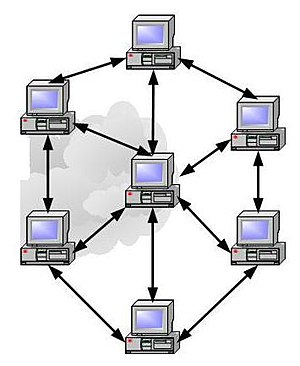 Image via Wikipedia
Image via WikipediaUsers should have the greatest possible access to Internet-based content, applications and services of their choice, whether or not they are offered free of charge, using suitable devices of their choice, the Committee says. It also declares that a competitive and dynamic environment may encourage innovation, increasing network availability and performance, and lowering costs, and can promote the free circulation of a wide range of content and services on the Internet.
Operators of electronic communication networks may need to manage Internet traffic, in connection with ensuring quality of services, the development on new services, network stability and resilience, or combating cybercrime. However, the Committee of Ministers stresses that those measures should be proportionate, appropriate, avoid unjustified discrimination and be reviewed periodically. Users should be informed about them and be able to understand how they affect their fundamental rights, in particular freedom of expression and privacy.
The Committee of Ministers has also adopted a Declaration on the Digital Agenda for Europe and a Declaration on the management of Internet protocol address resources in the public interest. In the former, it welcomes the European Union’s Granada Ministerial Declaration and its Digital Agenda for Europe, encourages Council of Europe member states to pursue the objectives of this agenda at national level, and invites the European Union to cooperate with the Council of Europe in this field.
In the declaration on the management of Internet protocol addresses, the Committee of Ministers underlines the importance of addressing the issue of scarcity of Internet resources, notably IPv4 addresses. It states that Internet protocol address resources should be regarded as shared public resources and allocated and managed in the public interest by the entities entrusted with these tasks taking into account the present and future needs of Internet users. It also points out that timely and effective deployment of the new Internet Protocol IPv6 – which offers a far larger address space - in the public sector should be ensured and swift preparations for migration to and deployment of IPv6 in the private sector should be encouraged and promoted.
The Committee also declares that, to the extent that information on users´activities and communications, as well as traffic data, amount to personal data, they should be treated and used in compliance with Article 8 of the European Convention on Human Rights and relevant case law of the European Court of Human Rights, as well as the Council of Europe Convention for the Protection of Individuals with regard to Automatic Processing of Personal Data (CETS No.108)
Making Sense of The Digital Era
Media and Information Society

No comments:
Post a Comment